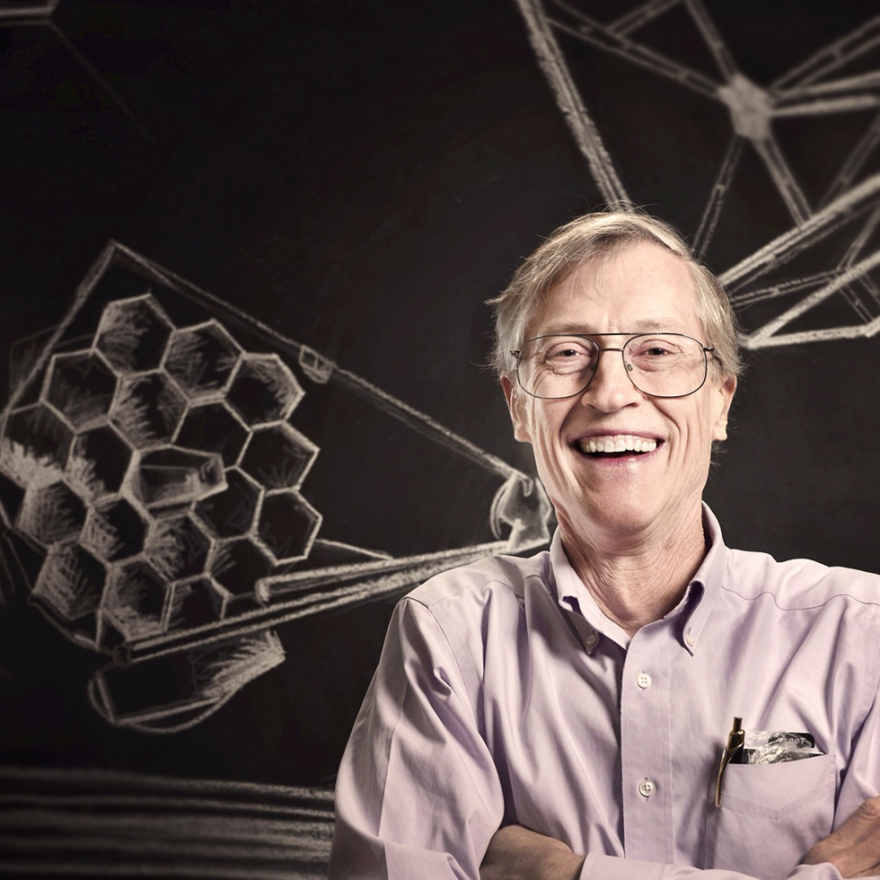John Mather shared the Nobel Prize in Physics in 2006 for his work with the Cosmic Background Explorer, or COBE. Launched in 1989, the satellite was instrumental in developing our understanding of cosmic microwave background radiation.
So, what is that?
"The cosmic background is the sort of light and heat that come to us from all directions, way out there from the distant universe. So not coming from objects, but from whatever is really, way farther beyond that."
"The cosmic background is the sort of light and heat that come to us from all directions, way out there from the distant universe. So not coming from objects, but from whatever is really, way farther beyond that," Mather explains.
Mather currently is the senior project scientist for NASA’s James Webb Space Telescope. He was the Coyne Lecturer in Astronomy and Astrophysics at Marquette University last month, where he explained the importance of his work in our understanding of the universe.
"The fact that it's got the right color says that it matches this story, the fact that it comes almost equally from all directions says it's really cosmic - doesn't come from anything local - and if you work really hard you can find it has dimples and pimples and bumps on it that are cosmic anisotropy, which is a Greek word and it means 'not the same in every direction,'" says Mather.

He continues, "So we mapped all these things and now you say, 'Well I think now I know how it all started, maybe we can figure out what ought to happen next.' So now we're in that business of trying to go from our idea about the early universe to what does it look like today."
Mather says the COBE satellite's findings are the strongest evidence we've found that the universe was indeed, "very hot when it was young." Still, while its findings confirms almost all predictions about cosmic background, it didn't fit all the predictions.
He says, "We need new concepts. We don't know what to be thinking about. We know we've tried really hard for a long time - Einstein started in on trying to combine them and he's apparently failed. We're still working on it."








